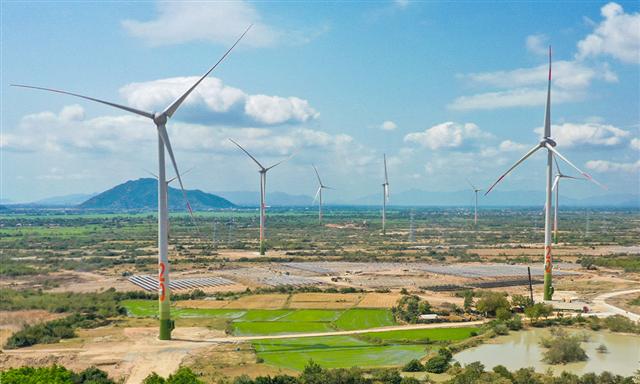EEP Mekong meets with clean energy stakeholders
EEP Mekong meets with clean energy stakeholders
The Energy and Environment Partnership with the Mekong Region (EEP Mekong), which has been supporting clean energy projects in the Mekong region since 2009, arranged a meeting with stakeholders in Laos yesterday.
The meeting, which took place in Vientiane, aimed to give interested stakeholders and participants an introduction to the content, approach and methodologies used in the second phase of the EEP Mekong Programme.
EEP Mekong, working in cooperation with the Institute of Renewable Energy Promotion (IREP) at the Ministry of Energy and Mines, briefed the participants on the updated content and methodologies to be employed in the second phase of the initiative.
Besides introducing the EEP Mekong Programme to clean energy promoters in Laos, the meeting also sought to arouse stakeholder's interest in cooperating with the programme in project development as well as co-financing of clean energy projects in Laos.
The overarching objective of the EEP Mekong Programme is to promote access to clean energy and to mitigate climate change by funding suitable projects in the Mekong region.
The EEP Mekong Programme has been supporting clean energy projects in the Mekong region since 2009 and has so far completed 32 projects with a further seven projects presently under implementation.
EEP Mekong applies i nno vative and sustainable financing mechanisms thru ‘Result-Based Financing' (RBF), while enhancing business partnerships with energy agencies and project dev elopers in the Mekong countries.
The second phase of the EEP Mekong Programme started in November 2014 and will support clean energy projects in Laos and other Mekong countries through a call-for-proposals starting in July 2015 .
D eputy Director General of IREP Mr Chantho Milattanapheng said energy is one of the most essential inputs for sustaining people's livelihoods and a key mechanism in socio economic development.
The increasing population and sustained economic growth over the past years has fuelled the increasing demand for energy and with increas ing demand it is increasingly important that the energy is generated sustainably.
Information from various sources pointed that energy from fossil fuels has dropped but demand for energy has tended to increase respectively.
Therefore, many countries have returned to pay attention to renewable energy developments which are believed to be clean and environmentally friendly, Mr Chantho said.
He noted that the Asean region has tried to develop various renewable energies in response to the demands of socio-economic development within the country and the region by defining renewable energy strategies and polices in each of the Mekong countries.
In Laos, renewable energy is considered as an essential contributor to energy supplies for the country's development, and to this end, the government has given importance to developing renewable energy and the supply of clean power to society, seeking to promote sustainability and green growth.
IREP's strategy document describes the Lao government's aim to increase the share of renewable energy to 30 percent of the nation's total energy consumption by 2025.
Thus, it is necessary to seek assistance in terms of technology, experience and budget funding from both the government and also foreign countries, Mr Chantho said.














